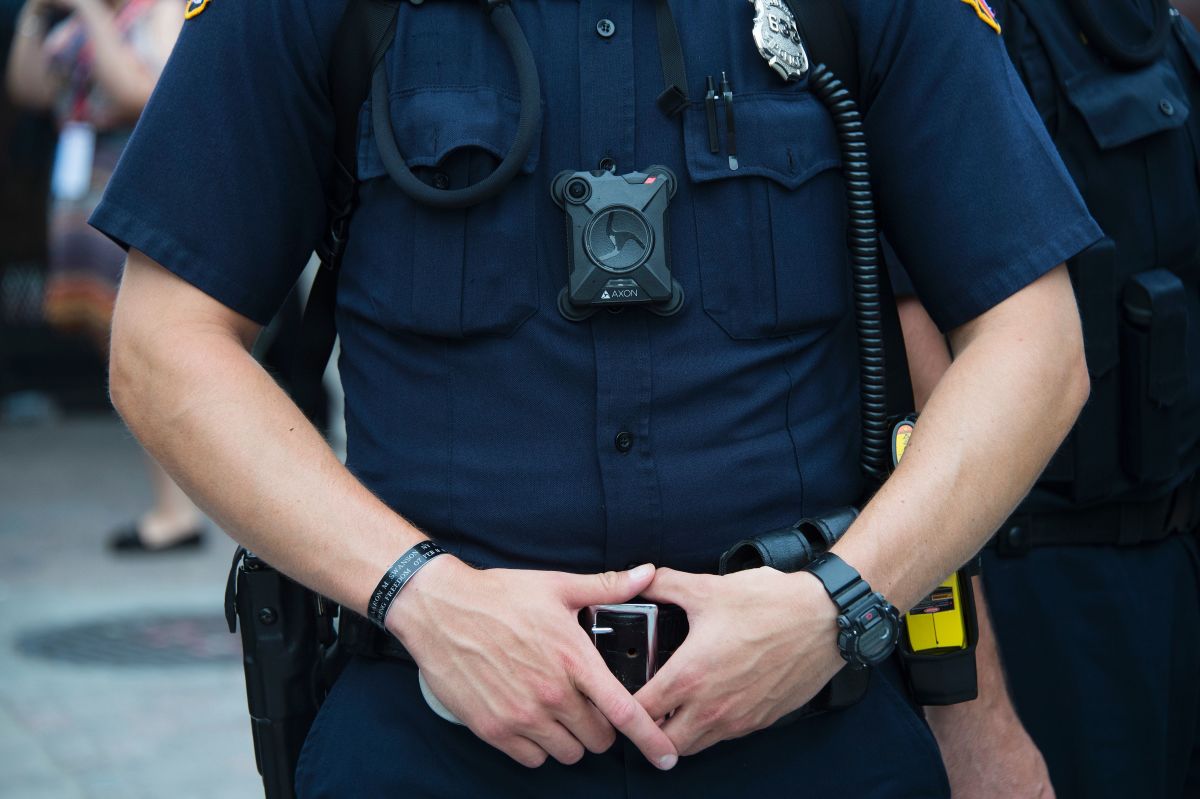New research finds that minority youth who are confronted by officers are more likely to subsequently engage in delinquent behavior than those who don’t face such encounters.
by Tom Jacobs

Say you’re an adolescent male, and while casually strolling through the streets of your neighborhood, you get stopped by a cop. He asks where you’ve been, what you’ve been doing, and who you’ve been hanging out with. He then sternly warns you to stay out of trouble before driving off.
You might think such stops would help deter antisocial behavior. In fact, new research suggests quite the opposite.
In a study featuring high school-age black, Latino, and mixed-race males in a major American city, researchers found that those who had experienced such a face-to-face encounter with the police subsequently engaged in more acts of juvenile delinquency, such as theft and vandalism, than those who had not.
This pattern—based on the kids’ self-reports—was true even for boys who had rarely participated in delinquent behavior before the stop. The study, in the Proceedings of the National Academy of Sciences, suggests that this behavior may be a result of the mental and emotional distress such encounters can create.
“Directing officers to make contact with individual boys and young men in ‘high-crime’ areas may impose a terrible cost,” writes a research team led by New York University psychologist Juan Del Toro. “These potentially damaging consequences warrant urgent attention from social scientists and policymakers.”
The study featured 637 boys from six public high schools in “high-intensity policing neighborhoods” in a large city in the southwestern United States. The areas were all subject to “proactive policing,” a strategy in which law enforcement agencies “seek to prevent crimes by proactively deploying officers in places where crime is likely to be reported, and interacting with the people most likely to be accused of crimes,” the researchers write.
The participants—who broke down ethnically as 57.5 percent Latino, 23.1 percent African American, and 19.4 percent “other nonwhite”—were surveyed in September of 2013, during their first semester of ninth grade, and again every six months through the spring of 2015.
On each survey, they were asked, “How many times in the past six months were you stopped and frisked by the police while walking?” They also reported whether and how often they had performed a series of delinquent acts during that period. For example, they were asked, “In the last six months, have you stolen, or tried to steal, something worth more than $50?” If so, they were asked to estimate how often they had committed that offense.
Finally, the researchers measured the subjects’ psychological distress as part of each survey. The boys responded to statements indicating depression, anxiety, and/or stress.
The researchers found that the kids’ level of delinquent behavior was unrelated to whether they had been stopped by a cop during the previous six months. If such stops are meant to inhibit bad behavior, they were ineffective with this group.
More troublingly, the team found that, on average, the more frequently a boy had been stopped, the more often he went on to engage in delinquent behavior six, 12, and 18 months later. This association was stronger “the younger boys are when stopped for the first time,” they add.
Further analysis suggested that one factor behind this behavior is the psychological stress that results from interacting with police. “Police stops, distress, and delinquency were contemporaneously related with one another,” the researchers write. This finding suggests that such actions “may unintentionally increase their engagement in criminal behavior.”
The team’s results complicate a 2017 National Academies of Sciences Report, which “found evidence that proactive policing strategies can reduce crime.” But these new findings suggest they can also psychologically scar young men, which is a problem not just for the men themselves, but for their neighborhoods too.s

The revelation of this is what Chief Serpas and Chief Harrison at the end of
their service, which is, “I am damned if I do and damned if I don’t”.
Psychiatry people never really want to fix and solve issues, their world is they are
always “studying people” which means lots of eternal cash flow for their business.
Then when their ideas all fail to repair and rehabilitate humans, then they send
the person to a “specialist”, who charges more to conclude with spiraling confusions and finds blame with everything but the criminal and his parents.
Ding Dong Psychobabble is what most city’s are operating under.
Man cannot fix his fellow man with mans wisdom and ideas, that is a first class
delusion and confusion,, hmmm,,, which has been the methods of operation
for over 50 years in all demographics in the USA.
God is crying !
Satan is laughing!
Humans are beguiled by the laughter and Hedonism.
******
Good Evening Mr Jeff 504 Thomas, I’ve readed all of these articles by researchers, all the results ring true…the physical, psychological & cultural damage to African Americans in this country is absolutely beyond belief…we have collective been abused in so many ways that I believe without a doubt a significant number of white people are demonic! Sekou
Really? What about questions like, ” where do you attend school, why aren’t you in class today, school ID badge?, parents aware that you’re not in class?” Some states hold parents accountable when a registered child isn’t in school. True that many parents do everything possible to instill moral standards, a sense of treating others as you would want to be treated – with respect and courtesy, a desire to achieve their highest level of accomplishments; however, the evils of the communal environment seem far more inviting and exciting than what is good. Some parents, themselves, are part of that same evil. We can’t blame that on law enforcement. But it’s all to common now to point the finger at the law/establishment instead of the four fingers pointing back at themselves.